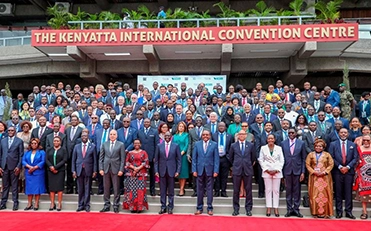
The physical effects of climate change cause huge economic losses, and they represent serious threats to the entire world community. Storms, wildfires, and floods have caused significant GDP losses over the last ten years. Africa, in particular, is faced with serious climate-related problems, such as drought, desertification, and an increase in cyclones, which cause migration, food crises, and displacement.
The continent is also expected to encounter increasing physical climate threats as a result of the global temperature rise. Additionally, urgent action is required to give debt relief and more liquidity because of African countries’ limited ability to respond to the climate issue as a result of debt distress and economic shocks.
The Africa Climate Summit (ACS) brought together global leaders, intergovernmental organizations, Regional Economic Communities, United Nations agencies, the private sector, civil society organizations, indigenous peoples, local communities, farmer organizations, children, youth, women, and academia to discuss Africa’s climate change challenges and formulate sustainable solutions.
The leaders expressed concern that many African countries face disproportionate burdens and risks from climate change-related, unpredictable weather events and patterns.
We urge world leaders to rally behind the proposal for a [global] carbon taxation regime including a carbon tax on fossil fuel trade, maritime transport and aviation, that may also be augmented by a global financial transaction tax (FTT)) to provide dedicated affordable and accessible finance for climate positive investments at scale and ring fencing of these resources and decision making from geopolitical and national interests,” the leaders urged.
The Summit proposed a new financing architecture responsive to Africa’s needs including debt restructuring and relief and the development of a new Global Climate Finance Charter through the United Nations General Assembly and the COP processes by 2025.